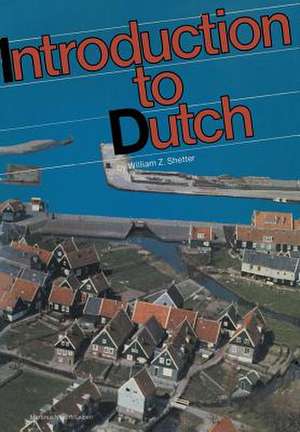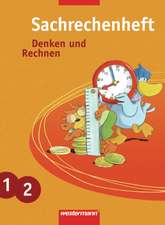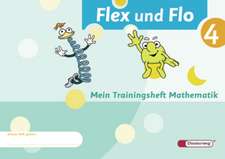A Practical Grammar Introduction to Dutch
Autor William Z. Shetteren Limba Engleză Paperback – dec 1984
Preț: 387.38 lei
Nou
Puncte Express: 581
Preț estimativ în valută:
74.13€ • 76.59$ • 61.66£
74.13€ • 76.59$ • 61.66£
Carte tipărită la comandă
Livrare economică 19 martie-02 aprilie
Preluare comenzi: 021 569.72.76
Specificații
ISBN-13: 9789024799787
ISBN-10: 9024799783
Pagini: 248
Ilustrații: 246 p.
Dimensiuni: 170 x 244 x 13 mm
Greutate: 0.4 kg
Ediția:Softcover reprint of the original 1st ed. 1984
Editura: SPRINGER NETHERLANDS
Colecția Springer
Locul publicării:Dordrecht, Netherlands
ISBN-10: 9024799783
Pagini: 248
Ilustrații: 246 p.
Dimensiuni: 170 x 244 x 13 mm
Greutate: 0.4 kg
Ediția:Softcover reprint of the original 1st ed. 1984
Editura: SPRINGER NETHERLANDS
Colecția Springer
Locul publicării:Dordrecht, Netherlands
Public țintă
ResearchCuprins
The Dutch language.- 1 Pronunciation.- Front,7bunded, front-rounded vowels.- The vowels.- The diphthongs.- The consonants.- Assimilation.- Stress.- 2 Spelling.- Spelling rules: closed syllable and open syllable.- The relationship of f to v and of s to z in certain words.- The n of the common ending -en.- Making the spelling adjustments.- 3 The plural.- The plural-en.- The plural-s.- Other plurals.- 4 Articles and demonstratives.- The definite article.- The word for this.- The word for that.- The demonstrative adjectives.- The indefinite article.- 5 Personal pronouns; the verb.- The subject forms.- Use of pronouns.- Present tense.- Spelling.- Yes-no-question.- 6 The verb; Hebben and zijn. Imperative.- Verbs with stems ending in -t or -d.- The verbs: gaan, staan, doen, slaan, zien.- The verb: komen.- The verbs: hebben and zijn.- The imperative.- 7 Reading selections. The place of the verb.- Amsterdam.- 8 The adjective. The adverb. Comparison.- Adjective ending in -e.- Adjective without ending.- Een + adjective + noun referring to male.- Linker- and rechter-.- Adverbs.- Comparison of adjectives and adverbs.- The superlative used as an adverb.- Adjectives ending in -s.- 9 Object pronouns. Reflexives.- The object forms of the personal pronouns.- The subject or object pronoun die.- A sentence with two objects: direct and indirect.- The reflexive pronouns.- Use of prepositions.- 10 Possessive adjectives.- The possessive adjectives.- Adjective ending after possessive.- The possessive pronouns.- The van construction.- The z’n/d’ r-construction.- 11 Numbers and dates. Currency and measurement.- The numbers.- The ordinal numbers.- Dates.- Units of currency and measures.- 12 Reading selections.- Nederland.- Zuid-Holland.- Voorjaar door Mies Bouhuys.- 13 The past tense(‘weak’ verbs).- The past tense of weak verbs.- The past participle.- The perfect tense.- 14 The past tense (’strong’ verbs).- The past tense of strong verbs.- Vowel changes in the stem.- Conjugation with hebten or zijn.- The past participle without ge-.- 15 Some irregular verbs. The past perfect tense.- Some irregular verbs.- The past perfect tense.- Use of tenses.- 16 Modal auxiliaries. Verb plus infinitive.- Modal auxiliaries.- The construction: mogen van, moeten van and niet hoeven van.- Independent use of the modals.- The verb laten.- Other verbs used in association with an infinitive.- 17 The future. The present participle and the infinitive.- The verb zullen.- The verb gaan.- Present-tense form for future.- The present participle.- Progressive aspect.- The infinitive.- 18 Review and reading.- Spoken language versus written language.- 19 Separable prefixes.- Stressed separable prefixes.- Stressed inseparable prefixes.- Inseparable prefixes.- 20 Conjunctions, relative pronouns.- Coordinating conjunctions.- Subordinating conjunctions: word order.- Subordinating conjunctions: meanings.- Relative pronouns.- 21 Word order: the places in the sentence.- Second place in the sentence.- First place in the sentence.- Last place in the sentence.- The negating adverb niet.- 22 The word ER. Prepositional compounds.- er + preposition.- Other functions of er.- 23 Diminutives.- The forms of the diminutives.- Use of the diminutive.- 24 The passive voice.- The passive construction.- Er and the passive sentence.- Active construction with men or je.- 25 Reading selections.- Geschiedenis.- Prinsjesdag.- De Kroon en het Parlement.- Verzuiling.- 26 Telling time.- Hour and half-hour.- Adverbs of time.- 27 Idiomatic usages of some common verbs.- Gaan.- Blijven.- Aan’ t…zijnand bezig zijn te.- Liggen, zitten, staan.- Kennen and weten.- Leven and wonen.- Verstaan and begrijpen.- Betekenen and bedoelen.- Onthouden and zich herinneren.- Vallen, opvallen, meevallen and tegenvallen.- Hebben.- 28 Word formation and derivation.- Compounding.- Derivation by suffixes.- Stress shift in derivation.- 29 Three stories.- Het kopje koffie.- Gezichten.- Regenboog.- A list of the most useful strong and irregular verbs.- English translations of the practice sentences.- Dutch-English vocabulary.- Photo-credit.- Text-credit.





